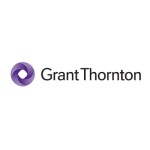The European Court of Justice (CJEU) once ruled that holding shares is not an entrepreneurial activity for VAT purposes. Following more case law, it became clear that a legal entity merely holding shares in other companies cannot reclaim the VAT on its expenses (passive holding). In light of recent developments, we want to take a fresh look at the VAT position of a holding entity.
On March 3 2022, the Advocate General of the CJEU argued in line with the holding doctrine. The Advocate General ruled that a holding company providing services to two of its subsidiaries against a profit share is not entitled to a VAT refund on the costs associated with the provided services.
In this case, costs were incurred by the holding company whereby the subsidiaries were the actual users and the subsidiaries did not have the right to reclaim VAT due to VAT-exempt activities. The Advocate General even ruled that such a scheme can constitute an abuse of rights.
However, there have also been several cases in which a holding entity was considered a VAT entrepreneur and granted the right to a VAT refund.
Holding companies as VAT entrepreneurs
A holding company that is actively involved with, and intervenes in, the management of subsidiaries in the group is considered a VAT entrepreneur (active holding). The holding company must receive appropriate remuneration (management fee) for these activities. A symbolic payment does not suffice.
In general, providing VAT taxable services to group companies results in entrepreneurship. In 2018, the CJEU ruled that the VAT taxable lease of property also qualifies the holding as a VAT entrepreneur.
Recharge (allocation) of costs can lead to VAT entrepreneurship as well, provided that the holding company adds value in the context of the cost recharges. For example, in practice the holding company often acts as a central purchasing entity for the group by purchasing administrative, accounting, commercial, and technical services. Properly allocating these costs can result in VAT entrepreneurship.
In a Dutch Supreme Court decision on June 19 2020 it was concluded that just a one-on-one cost recharge in principle is not sufficient to substantiate VAT entrepreneurship.
The Netherlands has a more generous approach when it comes to top holdings. A top holding owns shares as a means of exerting influence and being responsible for the day-to-day running of a subsidiary. In the Netherlands, the top holding company may form a VAT group with its subsidiaries. The holding company then reclaims the VAT on expenses in the VAT return of the VAT group, to the extent that the subsidiary is entitled to reclaim the VAT on its costs.
Partial entrepreneurship
A holding company with (for example) four subsidiaries can supply VAT taxable services to two subsidiaries, but not to the other two. The holding company must then be divided into an entrepreneurial and a non-entrepreneurial part. The holding company can also be a VAT entrepreneur for activities that have nothing to do with the holding of shares in the subsidiaries (holding-plus).
In these examples, the holding company is a partial entrepreneur and must allocate costs. Costs that are not attributable to the entrepreneurial part, but also not necessarily attributable to the non-entrepreneurial part (general costs), are deductible on a (pre) pro rata basis. This can be a complicating factor in VAT entrepreneurship and the calculation of the VAT reclaim of a holding company.
Purchase and sale of participations
The purchase and sale of subsidiaries deserves special attention. Here, the holding company often incurs major expenses. In principle, the holding company may reclaim VAT on the acquisition costs of a subsidiary if the holding company will provide VAT taxable services to the subsidiary after the acquisition. VAT on acquisition costs in the event of a failed takeover is also deductible, provided that the intention to perform VAT taxable services to the target can be demonstrated.
When selling a subsidiary, the holding company may not reclaim VAT. This can be different if the holding company can be considered an active holding or the buyer is a company not established in the EU. The transfer of a business ‘going concern’ instead of the transfer of shares can be a solution when selling a subsidiary.
The VAT position of a holding company is very complex. Holding companies are often balancing on a thin line when it comes to VAT entrepreneurship. In recent years, this issue has often been addressed in court cases. As a result, new conditions and focus points have emerged. It is therefore very important to review the VAT position of a holding entity regularly.
Ronald Bergenhenegouwen
Director, Grant Thornton
E: ronald.bergenhenegouwen@nl.gt.com
Marijn Dekker
Junior manager, Grant Thornton











